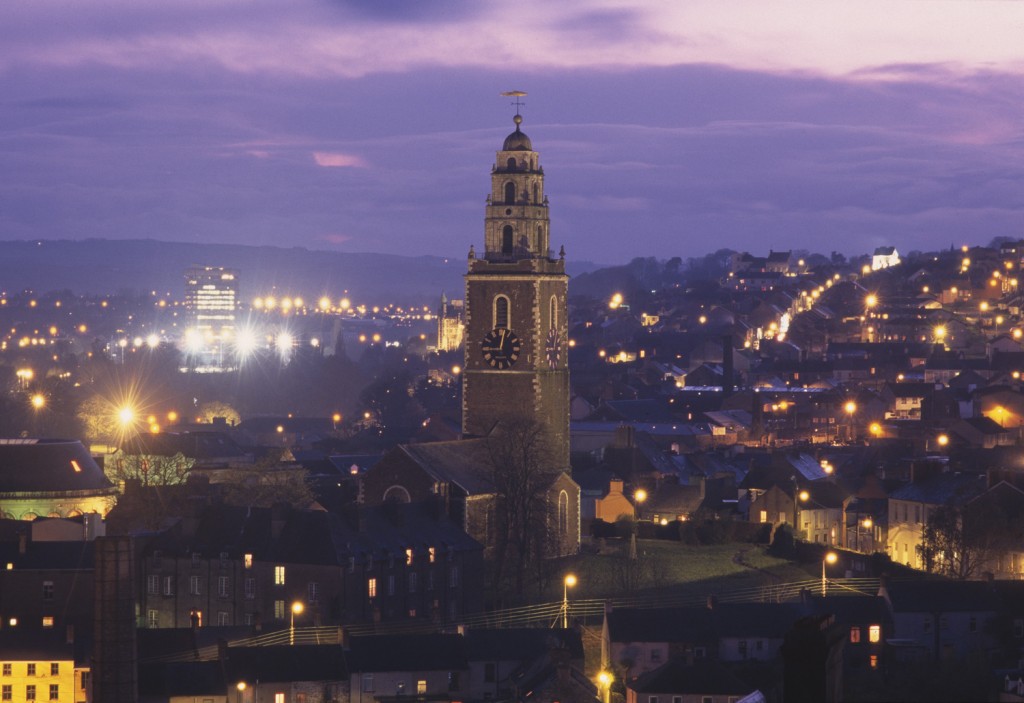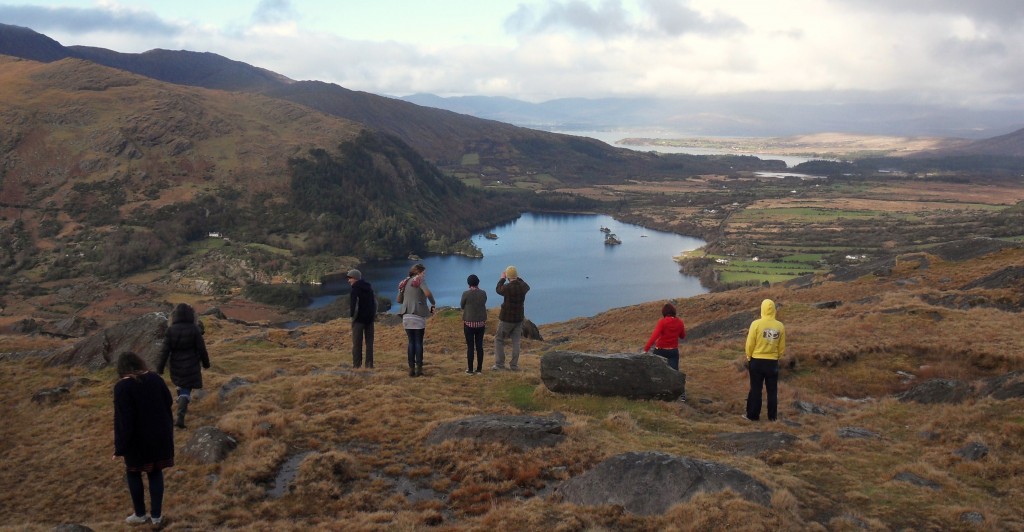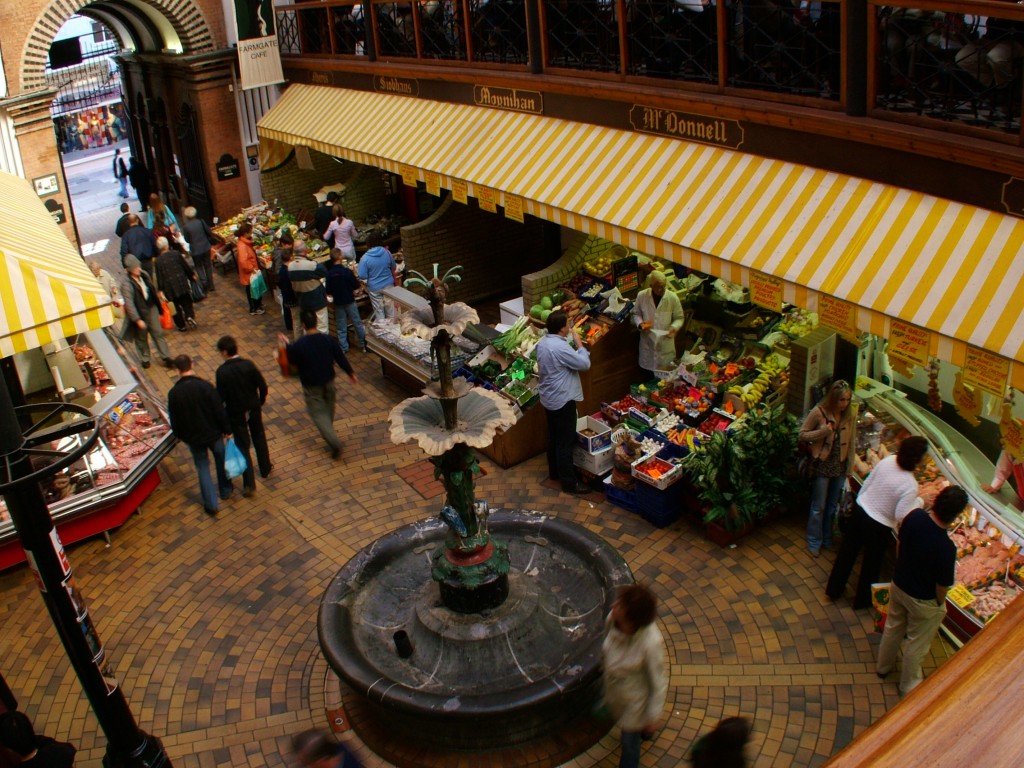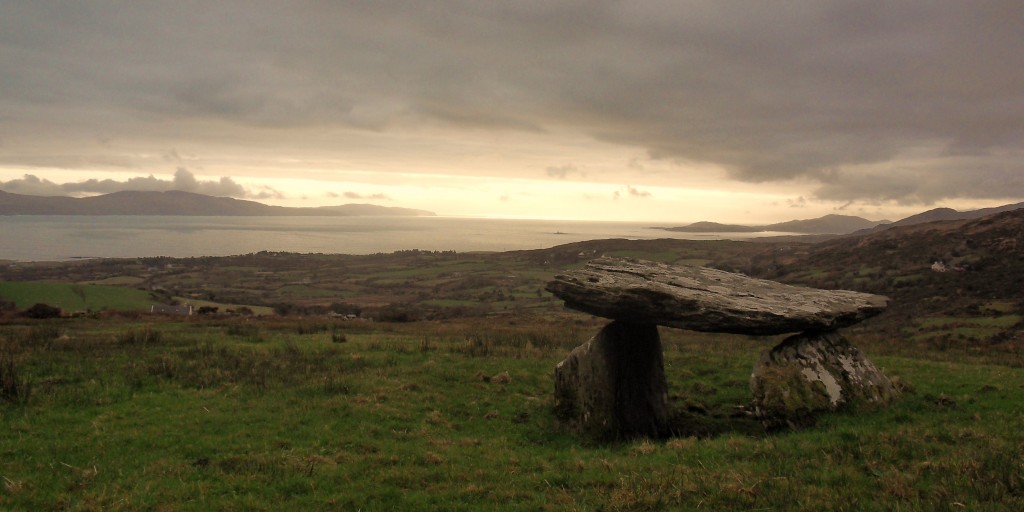Boston Globe, March 13, 2011|Thomas Breathnach, Globe Correspondent
Cork is known locally as both “the rebel county’’ and “the real capital.’’ Natives here harbor a jocular nationalism. People’s Republic of Cork T-shirts are the local apparel; Cork’s dialect has its own dictionary; and those who have never ventured outside the county consider it a badge of honor.
Much of this detachment is due to the area’s vastness; it is the largest county in the country. It takes longer to drive from the rolling farmlands of East Cork to the barren peninsulas of West Cork than it does to drive to Belfast in Northern Ireland. For us Corkonians, this means that vacationing on our doorstep is an all too welcome option, so this winter my friends and I eagerly embarked on a trip to savor some cross-county highlights.
We began here in Cork City, where billboards hailing the city’s status as a Lonely Planet top 10 international destination welcomed our arrival. The city center at the mouth of the River Lee sits on an island spanned by 20 bridges, thus the moniker “the Venice of Ireland.’’

We walked through the city’s charming French Huguenot district and the revamped shopping area of Opera Lane until the narrow old streets of Shandon led us to St. Anne’s Church for the afternoon bell-ringing. Simple directions were at hand for us first-timers, and with some perseverance we nimbly advanced from “Twinkle Twinkle Little Star’’ to “The Final Countdown.’’ With that soundtrack to set the mood we continued our climb up the city’s most famous landmark. After ducking pigeons and crouching through the belfry, magnificent vistas of the hilly city opened before us.
Lunch beckoned at the English market. This indoor food bazaar is the heart of the city, where locals have been meeting to eat since 1788. We browsed the stalls of artisan breads, cured meats, and farmhouse cheeses before deciding on a Cork Reuben with local spiced beef from the Sandwich Stall and a sizzling gourmet sausage from O’Flynn’s butchers. Jacob’s on the Mall, in the financial district, was a top spot for dinner. Formerly the site of the Turkish baths, the spacious dining hall with a massive glass ceiling was bustling. Jacob’s was just one of several upmarket restaurants offering recession deals, which made my rich venison stew all the more tasty.
After a decade’s dalliance with trendy wine and cocktail bars, nowadays Corkonians have come full circle, back to dimly lighted old-time pubs like the Mutton Lane Inn and Callanan’s. We headed to the Hi-B, tucked up a creaking staircase above a hair salon on Oliver Plunkett Street. It was a bit like sneaking into somebody’s living room but was a great spot to sit back and eavesdrop on the lilting banter of the regulars. Just don’t order a Guinness round in these parts. Creamy Beamish and the sweeter Murphy’s stout are the home brews.
![]() Leaving the city behind we began our venture into West Cork. The eight-lane highways filtered into narrow country roads, where driving times were at the mercy of tractor traffic, or herds of cows making a shortcut to the milking parlor.
Leaving the city behind we began our venture into West Cork. The eight-lane highways filtered into narrow country roads, where driving times were at the mercy of tractor traffic, or herds of cows making a shortcut to the milking parlor.
We were on our way to the remote Glen Lough Valley deep in the Beara Peninsula. The road trip, which rarely got out of fourth gear, took us through a trail of quintessential Irish market towns, each offering its own highlight. In Clonakilty we strolled at Inchidoney Beach, in Skibbereen we pulled up a pew at the Church Restaurant. Glengarriff offered classic Irish postcard scenes such as the purple police (or garda) station, flanked with blooming hydrangeas.
Glengarriff is the gateway to Beara. With its own Gulf Stream microclimate, the area abounds in unique flora and some of Ireland’s finest oak woodlands. We wandered down to Blue Pool, a sheltered inlet where mighty pines reflected off lulling waters, and caught a boat ride across the bay to see Ireland’s native gray seals.
Seals hold a rich place in Irish folklore with legend having it that they harbor the souls of drowned fishermen. This, perhaps coupled with the valuable ecotourism revenue they bring to the area, means these docile creatures are held in high esteem in the village. We took some great shots of seals and pups basking in the afternoon sun, then continued out to Garnish Island, a botanical delight of Italian gardens that added a continental flavor to the afternoon.
To get the ultimate rustic Irish experience we rented a traditional farmhouse in Glen Lough. With the help of the local postman, we were directed through remote boglands of sweeping golden grasses, until we finally descended on an oasis of lush pastures horseshoed by the Caha Mountains. Knockowen House, without any cellphone, Internet, or TV signal, was nonetheless complete with grazing donkey, peat fires, and dressers stacked with traditional willow-patterned china. It was Hibernian bliss.
Neighboring farmer Donie O’Sullivan was quick to show us around the valley. “There’s 365 lakes up there,’’ he claimed, pointing up to the sheer sandstone cliffs. “One for every day of the year.’’ Something had to feed all the waterfalls cascading around us.
Our next journey led us up the mountain road that is the Healy Pass. Humpback hills dropped before us revealing the stunning bays of Killmacalogue and Coulagh deep below. The ultra pretty village of Allihies, with its streetscape set against turquoise waters and white sands, glowed like a Celtic Caribbean.
The most beguiling of all Cork’s views was found at Dzogchen Beara — a Tibetan Buddhist retreat perched on a rocky escarpment high above the Atlantic Ocean. We took part in a guided-meditation session. This was Nirvana, Irish style.
Our endgame brought us to Dursey Island, Ireland’s most southwesterly point. Because of the treacherous currents, the island is connected to the mainland by Europe’s only cross-water cable car.
“Wait! It’s islanders first, then sheep,’’ said the operator as we tried to embark. There was no arguing with the local country code and we duly obliged — giving way to a small flock of mountain ewes as they clambered aboard.
Finally we were lofted above and across the foaming maelstrom, our hearts in our mouths and our eyes fixed on the ocean below. Dursey, once home to over a hundred islanders, has just two residents. We trekked past the ruins of St. Mary’s Abbey, the island graveyard, and the deserted hamlet of Kilmichael until nothing remained but ocean.
As the sun lowered on the island, the air of loneliness was eclipsed only by the bracing beauty surrounding us. Behind us were the rugged, grassy shelves of the Cork mainland and to the west, the mysterious Skellig Islands floated like pyramids in the Atlantic. We were standing at the edge of Europe. Staring seaward we recalled the local adage: “Next parish Boston.’’
If You Go
Where to stay
Shamrock Cottages
011-44-1823-660126
www.shamrockcottages.co.uk
Self-catering holiday cottages in dramatic locations.
Knockowen House is available from $475 per week.
Seaview Bed & Breakfast
Allihies, Beara, County Cork.
011-353-27-73004
www.seaviewallihies.com
Charming homely atmosphere overlooking the Atlantic. $48 per person sharing.
Hayfield Manor Hotel
Perrot Avenue, Cork City
011-353-21-4845900
www.hayfieldmanor.ie
With dropping rates, now’s a good time to check into Cork’s most exclusive hotel. From $205 per room.
Where to eat
Jacobs on the Mall
30 South Mall, Cork City.
011-353-21-4251530
www.jacobsonthemall.com
Superb local produce and excellent service . Three course menu from $38
McCarthy’s Bar
Glengarriff Village, County Cork.
011-353-27-63000
www.glengarriffpark.com/maccarthysbar.html
Delicious seafood, roasts and a great spot for traditional music. Mains from $16
What to do
Naomhóga Chorcaí
The Shandon Rowing Club, Cork City.
www.naomhogachorcai.com
No experience necessary – you may even learn a few phrases in Gaelic. $14
Church of St. Anne’s Shandon.
Church Street, Cork City.
011-353-21-4505906
www.shandonbells.org
Anita Ward’s dream date. Ringing your bells across the city will cost you $8
Bluepool Ferry
Glengarriff, County Cork.
011-353-27-63333
www.bluepoolferry.com
An animal or plant lovers delight. $19 includes admission to Garnish Island.
Dzogchen Beara
Garranes, Allihies, West Cork.
011-353-27-73032
www.dzogchenbeara.org
Free guided meditation sessions overlooking the Atlantic. Donations are not encouraged, but welcome.






